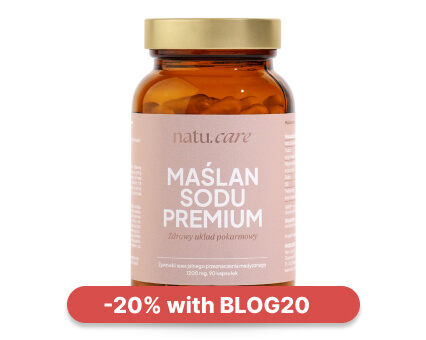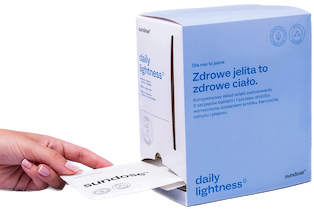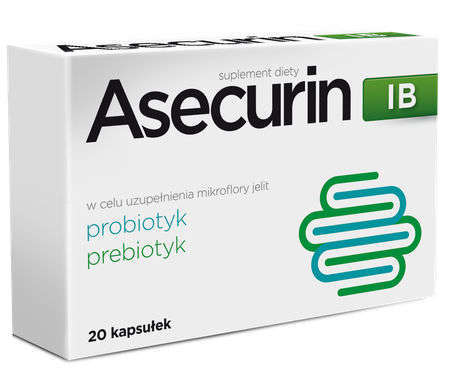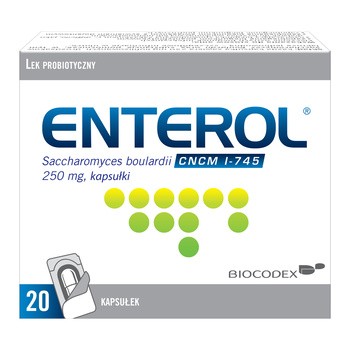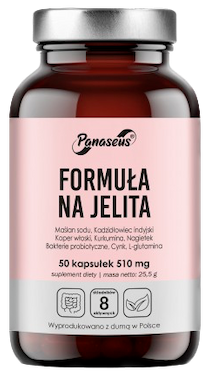Probiotic in pregnancy, after caesarean section and when breastfeeding [guide].
Probiotic for pregnant women - what live bacteria cultures can do for you and your baby.


Learn more about our editorial process
.

Learn more about our editorial process
.

Learn more about our editorial process
.

Learn more about our editorial process
.![Probiotic in pregnancy, after caesarean section and when breastfeeding [guide].](https://cdn-resources.natu.care/uploads/1/pregnant_woman_take_jar_with_pills_glass_water_home_health_care_prenatal_therapy_multivitamins_folic_acid_omega3_anemia_vita_a8494b5f1e.jpg)
Why you can trust us
Articles on Natu.Care are written based on scientific research, data from government websites and other reliable sources. The texts are written in cooperation with doctors, nutritionists and other health and beauty experts. Articles are reviewed before publication and during significant updates.
.Learn more about our editorial process
.Information about advertisements
Content on Natu.Care may contain links to products from the sale of which we may receive a commission. When creating content, we adhere to high editorial standards and take care to be objective about the products discussed. The presence of affiliate links is not dictated by our partners, and we select the products we review ourselves completely independently.
.Learn more about our terms and Conditions
.You want pregnancy to be a special time of joyful anticipation of your baby. And it would be nice if no gastrointestinal complaints disturbed you. However, there is a real revolution going on in your body, which can contribute to bloating, constipation, nausea...
.
In addition to dozens of mummy's and grandmother's remedies for pregnancy ailments, probiotics are increasingly mentioned. It is possible that the beneficial bacteria inhabiting your body can help you with more than just intestinal problems. Their spectrum of action seems to be much broader.
From this article you will learn:
- Why to take probiotics during pregnancy. .
- What probiotic bacteria can do for your baby. .
- Whether and when it's a good idea to give probiotics to your newborn.
- What to look out for.
- What to look out for when choosing a probiotic. .
- Whether probiotics are safe for pregnant women.
- What to look out for when choosing a probiotic.
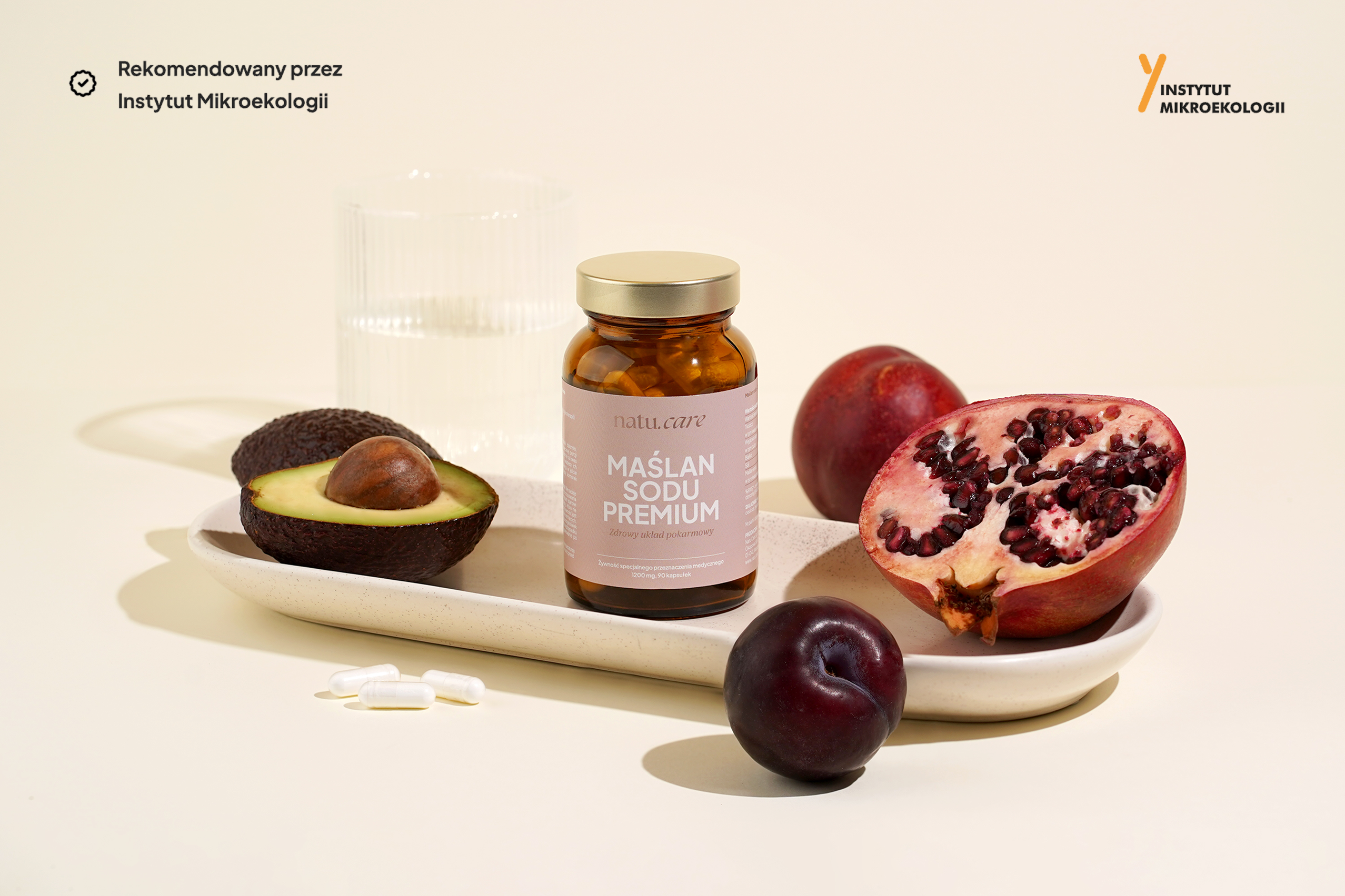
Odkryj korzyści, jakie niesie ze sobą Maślan Sodu Premium od Natu.Care!
Natu.Care Maślan Sodu Premium
Poznaj Maślan Sodu Premium – najwyższej jakości suplement wspierający zdrowie jelit. Maślan sodu pomaga w regeneracji nabłonka jelitowego, poprawia trawienie i wspiera naturalną równowagę mikroflory.
Sprawdź cenę
W końcu się lepiej czuję! Pożegnałam się ze wzdęciami i zaparciami a do tego poprawił się stan mojej cery bo zdrowe jelita to też zdrowa i piękna skóra. Polecam!@Klaudia F.
See also:
.
- What is a probiotic? .
- What is a prebiotic?
- What is a synbiotic?
- What is a psychobiotic?
- How to choose a gynecological probiotic?
- How to choose a gut probiotic?
- How to choose a good probiotic for a shaky gut?
- Where can you find natural probiotics? .
What are probiotics?
.
Probiotics are the living microorganisms - bacteria and yeasts - that populate your body. They are mainly found in the gut, but also on the skin and in the genital tract. When consumed in the right quantities, they bring many health benefits. They are often referred to as 'good' or 'friendly' bacteria because they help keep your digestive system healthyand.
There are many different types of bacteria in your body, especially in the gut. Some of these are beneficial, others can cause problems. Probiotics are definitely the positive heroes. They help maintain the balance of bacterial flora in your digestive system, not allowing blacks too much to goand.
Thus, they support in the treatment of some gastrointestinal problems, such as diarrhoea or irritable bowel syndrome (IBS). They can also support the genitourinary and immune systems and support the maintenance of a healthy body weightand.
Natural supplements for gut health
Premium Sodium Butyrate
Product description
Premium Sodium Butyrate is a natural support for your digestive system. With a high dose of butyric acid (940 mg), it supports the regeneration of the intestinal mucosa, improving gut health and function, and aids in the absorption of nutrients. By taking care of your intestines, you're taking care of the health of your entire body.
Studies involving people suffering from irritable bowel syndrome confirm that sodium butyrate is ideal for supporting issues related to bacterial flora imbalances (for example, after antibiotic therapy), constipation and diarrhea, inflammation of the intestinal mucosa, or a diet low in fiber.
Premium Sodium Butyrate capsules are made using the innovative DRcaps® technology. This guarantees that the active ingredients in the product are protected from the destructive effects of stomach acids and digestive enzymes. As a result, we can be sure that the beneficial ingredients are released in the small intestine and are fully absorbed by our body.
Premium Sodium Butyrate from Natu Care is 100% tested, and its composition contains only the highest quality raw materials.
Pros and cons
Pros:
- Supports digestive system function
- Helpful for various gastrointestinal conditions, including IBS
- High dose of butyric acid in each capsule
- Eco-friendly, clean, and tested composition
- Free from added sugar, gluten, GMOs, and lactose
- Innovative capsule technology - DRcaps
Cons:
- None
Additional Information
Take 3 capsules daily at any time of the day, preferably with a meal. Swallow the capsules whole with water.
Premium Sodium Butyrate is intended for adults.
The product should be used under medical supervision.
User review
I've been using the product for 2 weeks. My stomach feels lighter, and my digestion has improved. I recommend it.
Sundose° Daily Lightness°
Product description
Sundose° Daily Lightness° is a formula thatós supports the stomach and liver, reduces the frequency of gasóing and bloating, and supports optimal digestion. The formula contains no unnecessary additivesós, and the composition of the active ingredients (e.g. curcumin with piperine) mutually enhances their absorption.
The dietary supplement from Sundose comes in two flavour versions: orange and green.
Pros and cons
Sundose° Daily Lightness° is a formula thatós supports the stomach and liver, reduces the frequency of gasóing and bloating, and supports optimal digestion. The formula contains no unnecessary additivesós, and the composition of the active ingredients (e.g. curcumin with piperine) mutually enhances their absorption.
The dietary supplement from Sundose comes in two flavour versions: orange and green.
Additional information
Sundose° Daily Lightness° is a formula thatós supports the stomach and liver, reduces the frequency of gasóing and bloating, and supports optimal digestion. The formula contains no unnecessary additivesós, and the composition of the active ingredients (e.g. curcumin with piperine) mutually enhances their absorption.
The dietary supplement from Sundose comes in two flavour versions: orange and green.
Sundose° Daily Lightness° is a formula thatós supports the stomach and liver, reduces the frequency of gasóing and bloating, and supports optimal digestion. The formula contains no unnecessary additivesós, and the composition of the active ingredients (e.g. curcumin with piperine) mutually enhances their absorption.
The dietary supplement from Sundose comes in two flavour versions: orange and green.
Asecurin IB
Product description
Asecurin IB is a synbiotic, i.e. a combination of a probiotic and a prebiotic. It contains bacteria and yeast to support the intestines and digestive system, as well as inulin, whichós food for these microorganisms. The addition of a prebiotic supports and accelerates the growth of beneficial bacterial flora in the intestines.
Pros and cons
Asecurin IB is a synbiotic, i.e. a combination of a probiotic and a prebiotic. It contains bacteria and yeast to support the intestines and digestive system, as well as inulin, whichós food for these microorganisms. The addition of a prebiotic supports and accelerates the growth of beneficial bacterial flora in the intestines.
Additional information
Asecurin IB is a synbiotic, i.e. a combination of a probiotic and a prebiotic. It contains bacteria and yeast to support the intestines and digestive system, as well as inulin, whichós food for these microorganisms. The addition of a prebiotic supports and accelerates the growth of beneficial bacterial flora in the intestines.
Biocodex Enterol
Product description
Enterol is an OTC medicine containing a strain of yeastów particularlyóhelpful in the treatment of diarrhoea caused by infections or so-called travel diarrhoea. It is also recommended as a protective treatment of the intestines during antibiotic intake.
.
Pros and cons
Enterol is an OTC medicine containing a strain of yeastów particularlyóhelpful in the treatment of diarrhoea caused by infections or so-called travel diarrhoea. It is also recommended as a protective treatment of the intestines during antibiotic intake.
.
Additional information
Enterol is an OTC medicine containing a strain of yeastów particularlyóhelpful in the treatment of diarrhoea caused by infections or so-called travel diarrhoea. It is also recommended as a protective treatment of the intestines during antibiotic intake.
.
Enterol is an OTC medicine containing a strain of yeastów particularlyóhelpful in the treatment of diarrhoea caused by infections or so-called travel diarrhoea. It is also recommended as a protective treatment of the intestines during antibiotic intake.
.
Product description
Using Panaseus Digestive Formula can help improve intestinal health by supporting the intestinal barrier, reducing inflammation, protecting against damage and restoring healthy intestinal microflora.
Experience a rós difference in gut function with plant extracts, amino acids and probiotic bacteria.
Pros and cons
Using Panaseus Digestive Formula can help improve intestinal health by supporting the intestinal barrier, reducing inflammation, protecting against damage and restoring healthy intestinal microflora.
Experience a rós difference in gut function with plant extracts, amino acids and probiotic bacteria.
Additional information
Using Panaseus Digestive Formula can help improve intestinal health by supporting the intestinal barrier, reducing inflammation, protecting against damage and restoring healthy intestinal microflora.
Experience a rós difference in gut function with plant extracts, amino acids and probiotic bacteria.
Why are probiotics important for pregnant women?
.
Pregnancy is a special time in a woman's life. Most mums-to-be try to take more care of themselves then. However, it is impossible to protect yourself from everything. One of the conditions that can affect pregnant women are intimate infections - especially bacterial vaginitis ( bacterial vaginosis - BV) and vaginal candidiasis (thrush)and.
In addition to the unpleasant symptoms associated with the condition itself, intimate infections can also increase the likelihood of premature birth. They are also often followed by urinary tract infectionsand.
Probiotic bacteria make it difficult for pathogens to adhere to the vaginal mucosa. This makes it easier for pathogenic microbes to be removed from the body. Probiotics also produce substances that can directly cause the death of unwanted pathogensand.
In addition, probiotics improve the digestive system and the absorption of nutrients from food. This is particularly important because food from a certain point onwards needs to nourish not only you, but also your babyand. Ensuring the correct absorption of vitamins, minerals or valuable fats is crucial for the health of the mother and the development of the foetus.
Ah, that pregnancy nausea...
.A study involving 32 pregnant women was conducted in 2021. The participants took probiotic bacteria mainly from the Lactobacillus species. The results suggest that probiotic supplementation reduced feelings of nausea, constipation and even the frequency of vomiting. The women also declared an improvement in comfortand.
Another interesting aspect? A 2018 meta-analysis of 10 studies found that taking probiotics during pregnancy may have a beneficial effect on glucose metabolism, which may be helpful in treating and preventing gestational diabetes .
Provided the following information is available.
The above also seems to be confirmed by a 2022 scientific paper prepared by Polish researchers commissioned by the Medical University of Lublin. The study suggests a possible beneficial effect of probiotic therapy on the occurrence of pregnancy ailments (such as gestational diabetes, excessive weight gain during pregnancy and pre-eclampsia) and thus on reducing the likelihood of metabolic syndrome after pregnancyand.
I must point out, however, that all researchers unanimously emphasise the preliminary nature of the experiments and analyses carried out. Many more studies are definitely needed to confirm such beneficial effects of probiotics, to determine which specific strains are responsible for them and to adjust effective dosesand.
.
See also other preparations for mums-to-be:
.
Probiotics and preterm birth
.
Some studies suggest that abnormal vaginal bacterial flora, and consequently increased susceptibility to intimate infections, may increase the risk of preterm birthand.
However, a 2018 meta-analysis looking at 27 different studies did not find that taking probiotics during pregnancy in any way affected the length of pregnancy or possible preterm birth .
.
Probiotics after caesarean
.
During a 'standard' birth, the newborn passes through the birth tract, borrowing its probiotic bacteria from its mother. These then colonise its digestive system. With birth by caesarean section, this pathway is - necessarily - bypassed. Research shows that babies born via caesarean section may have poorer gut flora than those born by natural meansand.
Mothers being prepared for caesarean section in the perinatal period are more likely to receive antibiotic therapy, which may affect the diversity of the gastrointestinal microbiota of the newborn and infant..
 .
.
Katarzyna Grajpermagister of pharmacy
.But rest assured, this can be made up.
Oh no! I had a caesarean...
Contrary to what you may (unfortunately) read on some forums, childbirth by caesarean section is not the "worse option" for a baby to come into the world. This procedure often saves your life and health and that of the newborn. Do not feel remorseful. Don't let yourself be talked into bizarre theories (seriously, if someone uses the word deliveries in front of me, I won't vouch for myself). Remember, you're a great mum!
There are many ways to pass on the mother's probiotic bacteria to the baby. The transfer of bacterial flora occurs, for example, through contact with the parent's skin. This is why staff place the newborn on the bare breast of mum or dad shortly after birth - it is as much about bonding, reassurance as it is about the valuable probiotics that also reside on the skin.
.
Another way is to wipe the baby's nose and mouth with the swab used to swab the genital tract. If the doctor deems it necessary, the newborn can also be given probiotics, aimed at this youngest age groupand.
Breast milk contains a number of natural prebiotics that stimulate the proliferation of lactic acid bacteria in the baby's gut. In addition to these, it also contains strains of Bifidobacterium and Lactobacillus bacteria, which colonise the digestive tract of the newborn and have a beneficial effect on its health..
 .
.
Katarzyna Grajpermagister of pharmacy
..
Testing of breast milk and infant stool samples revealed the presence of exactly the same strains (Lactobacillus and Bifidobacterium), suggesting that breast milk plays an important role in the colonisation of the gastrointestinal tract of newborns,†adds pharmacist.
Bifidobacteria play a key role in early life. They are among the first colonisers of the human gut. According to studies, children suffering from allergic diseases have a reduced diversity of intestinal microorganisms and a lower abundance of Bifidobacterium, Lactobacillus and Bacteroides..
 .
.
Ilona Krzak Master of Pharmacy
.
Probiotics for breastfeeding
.
Some of the bacterial flora enters your milk and by this route reaches your baby's digestive tract. If you are feeding your baby with replacement foods, talk to your paediatrician about the appropriateness of giving your newborn probiotics.
Results show that there is a minimal population of bifidobacteria in the faeces of formula-fed newborns. Bifidobacterium strains isolated from breastfed infants are dominated by B. catenulatum. In contrast, B. reuteri has a proven effect in relieving intestinal colic..
 .
.
Ilona Krzak Master of Pharmacy
A review of 2021 studies suggests that changes in gut flora in newborns can lead to food allergies, skin allergies and even asthma. Depleted gut flora may also be associated with reduced immunity and a greater likelihood of metabolic syndrome-related diseasesand.
The authors of the study believe that appropriately selected probiotic therapy may prevent such problems.
Probiotic supplementation in newborns also appears to be particularly important when antibiotics are used, which can be particularly devastating to the developing gut microflora. As experts point out, this development occurs during the first 12 months of life. After this period, the composition of children's microbiota becomes similar to that of adultsand.
Happily, studies show that probiotic supplementation is able to maintain bifidobacteria levels in newborns during antibiotic therapy, so it is important to supplement probiotics during antibiotic use..
 .
.
Ilona Krzak Master of Pharmacy
.
Vaginal strobiotics in pregnancy
.
If you are wondering whether you can use vaginal probiotics during pregnancy - let me reassure you: you can. After consulting your gynaecologist, of course. Experts point out that the advantage of vaginally applied preparations is their fast, local action. They are recommended for use in situations where the vaginal bacterial flora needs to be rebuilt immediatelyand.
.
How to choose the best probiotic for a pregnant woman?
.
Magister of Pharmacy Ilona Krzak explains that choosing the right probiotic is a challenge as it is influenced by many factors. There are differences between different preparations:
- the efficacy of strain- and disease-specific probiotic products, .
- mechanisms of action of different probiotic strains, .
- production processes and quality control of the products, .
- international regulatory requirements, .
The biggest challenges associated with microflora analysis are the lack of a consistent definition of 'normal' microflora, generally accepted diversity indices and standard measurement methods.
.
 .
.
Ilona Krzak Master of Pharmacy
.
.
There are nevertheless several characteristics that a good probiotic preparation should have. Firstly, pay attention to its composition, in the context of the problem for which you want to take it.
The properties of probiotics depend on the strain of the probiotic, so a different formulation should have a different composition for intestinal problems, a different one for intimate infections, and a different one will be best for replenishing the microbiota of a newborn baby.
Don't know what you should be looking for? You'll find a handy chart below. But before we get to that, I need to mention the designations of probiotic bacterial strains.
Bacterial strains.
A good probiotic should contain information on:
.
- type of bacteria (e.g. Lactobacillus), .
- the species of bacteria (e.g. acidophilus), .
- specific strain (e.g. W22), .
- total number of bacteria expressed in CFU ( colony-forming unit), i.e. colony-forming units. .
.
|
Ailment/indication . |
Best probiotic strains |
|
When on antibiotics . |
|
|
Diseases of the intestines |
|
|
Intimate infections |
|
|
Reconstruction of the microbiota in newborns |
|
Are probiotics safe during pregnancy?
.
Based on the available research, probiotics are safe for pregnant women. However, if you are expecting a baby and are considering adding probiotics to your diet, it is most important to first consult your doctor and ask him or her about a particular product.
The safety of individual products can vary: some strains are tested regarding their use in pregnant women, others do not have such tests. It is also important to choose high quality products, with effects confirmed by studies. A gynaecologist who knows your state of health will advise you on the best probiotic to suit your needs.
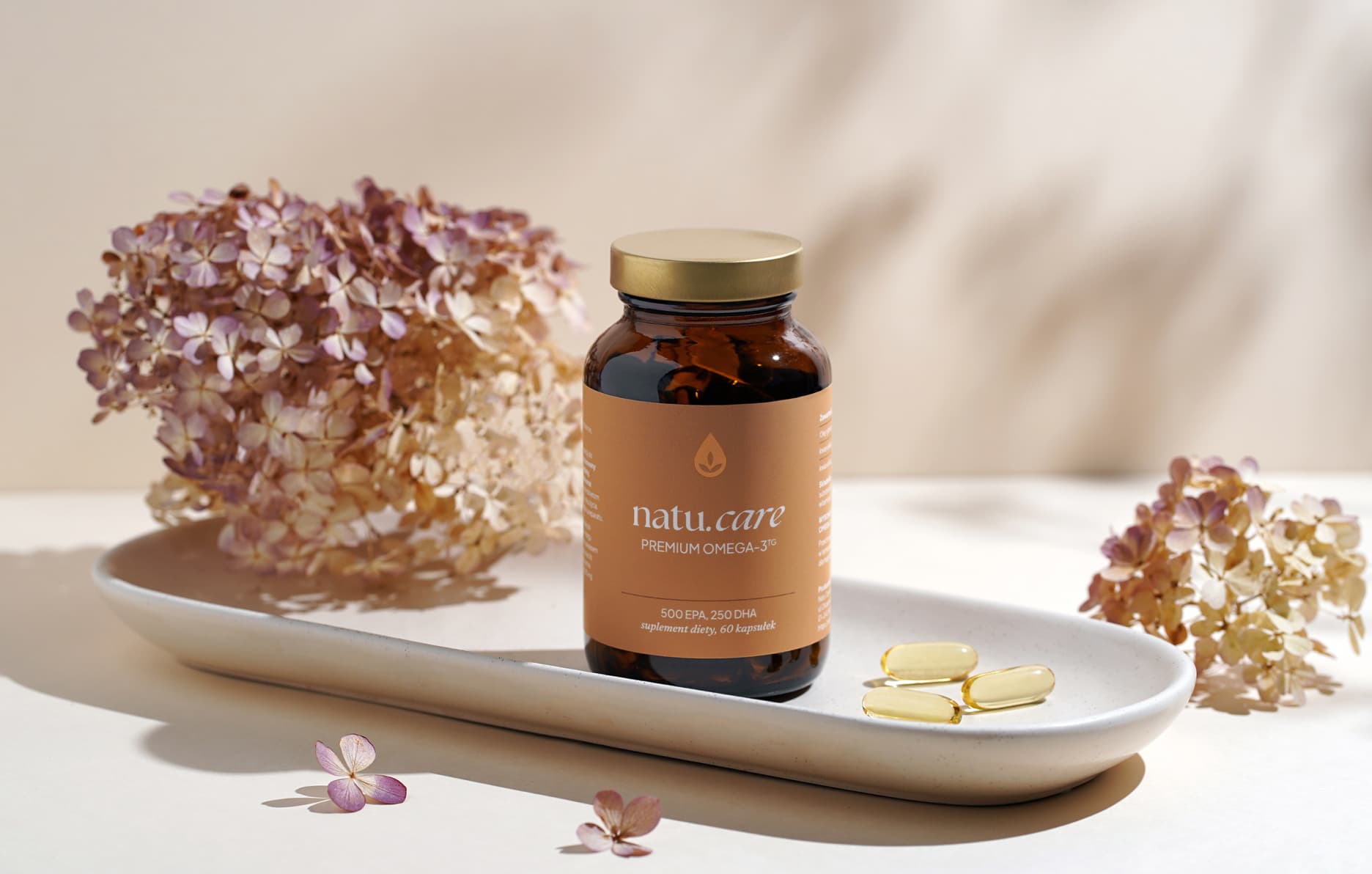
Sprawdź, za co pokochały go tysiące klientek Natu.Care Premium Omega-3ᵀᴳ -15% z kodem BLOG15
Natu.Care Omega-3ᵀᴳ Premium
Natu.Care Omega-3ᵀᴳ Premium dla zdrowia serca, mózgu i odporności. Najlepsza przyswajalność. Optymalna dawka 750 mg. Przebadana przez niezależne laboratorium.
Zobacz więcej
Produkt ma super skład, transparentną etykietę i co dla mnie jest ważne – małe kapsułki do połknięcia. Nie ma też nieprzyjemnego efektu odbijania rybą, który miałam spożywając inne produkty. Widzę znaczną poprawę odporności. Polecam!@Kasia P.
See also:
.
Summary
.
- Probiotics are live bacteria that reside in, among other things, the digestive and genitourinary systems.
- Probiotics are the living bacteria that reside in the digestive and genitourinary systems.
- Probiotics during pregnancy can prevent intimate infections, as well as support their treatment. Some studies suggest that maintaining the balance of the gut microflora can prevent gestational diabetes and metabolic problems after pregnancy.
- You can also give probiotics to your newborn to rebuild the gut microbiota, especially if you have given birth by caesarean section or your baby is taking an antibiotic.
- A good probiotic should have well-defined bacterial strains and a stated CFU count, indicating exactly how many micro-organisms are in one serving of the product. .
- The use of a probiotic during pregnancy is considered safe, but always requires consultation with a doctor. .
FAQ
.Can you drink Actimel while pregnant?
.You can drink Actimel during pregnancy, provided you have no other health contraindications. Also be aware that this drink contains vitamin B6 and D. If you are taking other vitamin preparations - be careful not to exceed the daily recommended dose.
Actimel is a probiotic drink that contains vitamins and probiotic Lactobacillus casei, beneficial for intestinal health and the immune system.
Which probiotic to choose while pregnant for antibiotic use?
.Choose probiotic containing strains such as Lactobacillus rhamnosus GG, Lactobacillus acidophilus, Bifidobacterium bifidum which are safe during pregnancy. However, it is best to have a specific preparation indicated to you by your doctor.
Wait a minimum of two hours between taking an antibiotic and a probiotic to maintain the best effectiveness of both preparations.
Why take probiotics in pregnancy?
.Probiotics help to balance the intestinal microflora, which is key to the proper functioning of the digestive system. For example, they can help prevent or relieve constipation, which is a common problem during pregnancy.
Probiotic bacteria can boost the body's immune system, which is particularly important during pregnancy when the immune system can be a little jittery. Research suggests that they can also reduce the risk of allergies in the baby if taken during pregnancy. Probiotics are also part of prevention and support for the treatment of intimate infections.
Take probiotics as prescribed by your doctor. Make sure they are suitable for pregnant women.
Take probiotics as recommended by your doctor.
What to take for bacteria in pregnancy?
.To minimise the risk of bacterial infection, wash your hands regularly, especially before eating. Only consume well-cooked and pasteurised foods to avoid bacteria that can compromise the safety of your pregnancy.
Get a healthy diet, rich in protein, omega-3 fatty acids, vitamins and minerals, which boosts immunity and helps fight bacteria. For example, vitamin C present in citrus fruits, helps boost the immune system.
And most importantly: visit your gynaecologist regularly and have the recommended tests. If you notice any worrying symptoms such as fever, abdominal pain, changes in discharge from the genital tract, contact your doctor immediately.
And most importantly: see your doctor immediately.
Do probiotics have side effects?
.Yes, probiotics can cause side effects, although these are usually mild and temporary. Examples of symptoms include bloating, gas, abdominal pain or a change in bowel movements. Initially, these can exacerbate the symptoms you are trying to combat with probiotics. This is due to the body's adaptation process to the new bacteria.
Rarely, in people with weakened immune systems, probiotics can lead to more serious infections. Therefore, if you have an illness that interferes with your immune system, consult your doctor before starting probiotic supplementation.
Probiotics can also lead to serious infections.
Also, some probiotics may interact with medications. Therefore, always inform your doctor about any probiotics you are taking.
Please be sure to inform your doctor about any probiotics you are taking.
It is important to carefully follow the manufacturer's dosage and storage recommendations for probiotics. Some probiotics must be stored in the refrigerator to maintain the viability of the bacteria. Do not exceed the recommended dose unless your doctor tells you otherwise.
.What probiotic to take before giving birth?
.Best if you consult your gynaecologist about the choice of a particular preparation. Just before childbirth, for example, strains such as Lactobacillus rhamnosus GG, Lactobacillus acidophilus and Bifidobacterium bifidum will work well.
If you need a probiotic just before childbirth, you should consult your gynaecologist.
Unless otherwise advised by your doctor, take probiotics daily for the last 2-4 weeks of pregnancy. Probiotic bacteria help to strengthen your gut microflora, which can have a positive impact on your newborn's microbiota.
What is good for diarrhoea in pregnancy?
.If you have a problem with diarrhoea during pregnancy, see your GP. There are safe preparations on the market that can help you. Remember to drink plenty of water to prevent the dehydration that diarrhoea promotes.
In addition to medications, your specialist may also recommend a change diet and the use probiotics.
.
Sources
.See all
.Admin, A. P. A. (2020, October 1). Probiotics During Pregnancy. American Pregnancy Association. https://americanpregnancy.org/healthy-pregnancy/pregnancy-health-wellness/probiotics-during-pregnancy/
Baldassarre, M. E., Palladino, V., Amoruso, A., Pindinelli, S., Mastromarino, P., Fanelli, M., Di Mauro, A., & Laforgia, N. (2018). Rationale of Probiotic Supplementation during Pregnancy and Neonatal Period. Nutrients, 10(11), Article 11. https://doi.org/10.3390/nu10111693
Barthow, C., Wickens, K., Stanley, T., Mitchell, E. A., Maude, R., Abels, P., Purdie, G., Murphy, R., Stone, P., Kang, J., Hood, F., Rowden, J., Barnes, P., Fitzharris, P., Craig, J., Slykerman, R. F., & Crane, J. (2016). The Probiotics in Pregnancy Study (PiP Study): Rationale and design of a double-blind randomised controlled trial to improve maternal health during pregnancy and prevent infant eczema and allergy. BMC Pregnancy and Childbirth, 16(1), 133. https://doi.org/10.1186/s12884-016-0923-y
Dawe, J. P., McCowan, L. M. E., Wilson, J., Okesene-Gafa, K. A. M., & Serlachius, A. S. (2020). Probiotics and Maternal Mental Health: A Randomised Controlled Trial among Pregnant Women with Obesity. Scientific Reports, 10(1), Article 1. https://doi.org/10.1038/s41598-020-58129-w
Jarde, A., Lewis-Mikhael, A.-M., Moayyedi, P., Stearns, J. C., Collins, S. M., Beyene, J., & McDonald, S. D. (2018). Pregnancy outcomes in women taking probiotics or prebiotics: A systematic review and meta-analysis. BMC Pregnancy and Childbirth, 18(1), 14. https://doi.org/10.1186/s12884-017-1629-5
Liu, A. T., Chen, S., Jena, P. K., Sheng, L., Hu, Y., & Wan, Y.-J. Y. (2021). Probiotics Improve Gastrointestinal Function and Life Quality in Pregnancy. Nutrients, 13(11), Article 11. https://doi.org/10.3390/nu13113931
Martín-Peláez, S., Cano-Ibáñez, N., Pinto-Gallardo, M., & Amezcua-Prieto, C. (2022). The Impact of Probiotics, Prebiotics, and Synbiotics during Pregnancy or Lactation on the Intestinal Microbiota of Children Born by Cesarean Section: A Systematic Review. Nutrients, 14(2), Article 2. https://doi.org/10.3390/nu14020341
McKerracher, L., Moffat, T., Barker, M. E., Murray-Davis, B., Kennedy, K. M., Bellissimo, C. J., Yeo, E., Høtoft, D., Zalot, L., Parlette, V., Atkinson, S. A., & Sloboda, D. M. (2023). Probiotics in pregnancy: Inequities in knowledge exchange, attitudes, and use of probiotics in a socio-demographically diverse, cross-sectional survey sample of pregnant Canadians. PharmaNutrition, 24, 100344. https://doi.org/10.1016/j.phanu.2023.100344
.Obuchowska, A., Gorczyca, K., Standyło, A., Obuchowska, K., Kimber-Trojnar, Ż., Wierzchowska-Opoka, M., & Leszczyńska-Gorzelak, B. (2022). Effects of Probiotic Supplementation during Pregnancy on the Future Maternal Risk of Metabolic Syndrome. International Journal of Molecular Sciences, 23(15), Article 15. https://doi.org/10.3390/ijms23158253
Rutayisire, E., Huang, K., Liu, Y., & Tao, F. (2016). The mode of delivery affects the diversity and colonization pattern of the gut microbiota during the first year of infants' life: A systematic review. BMC Gastroenterology, 16(1), 86. https://doi.org/10.1186/s12876-016-0498-0
Zhang, C., Li, L., Jin, B., Xu, X., Zuo, X., Li, Y., & Li, Z. (2021). The Effects of Delivery Mode on the Gut Microbiota and Health: State of Art. Frontiers in Microbiology, 12. https://www.frontiersin.org/articles/10.3389/fmicb.2021.724449
Zheng, J., Feng, Q., Zheng, S., & Xiao, X. (2018). The effects of probiotics supplementation on metabolic health in pregnant women: An evidence-based meta-analysis. PLOS ONE, 13(5), e0197771. https://doi.org/10.1371/journal.pone.0197771
.
Editorials
Meet the team

master of pharmacy
Katarzyna Grajper is a graduate in pharmacy from the Medical University of Gdansk. She works as a Master of Pharmacy in a pharmacy on a daily basis. She tries to constantly expand her knowledge with current guidelines so that the patient can receive competent advice in accordance with EBM (Evidence Based Medicine).

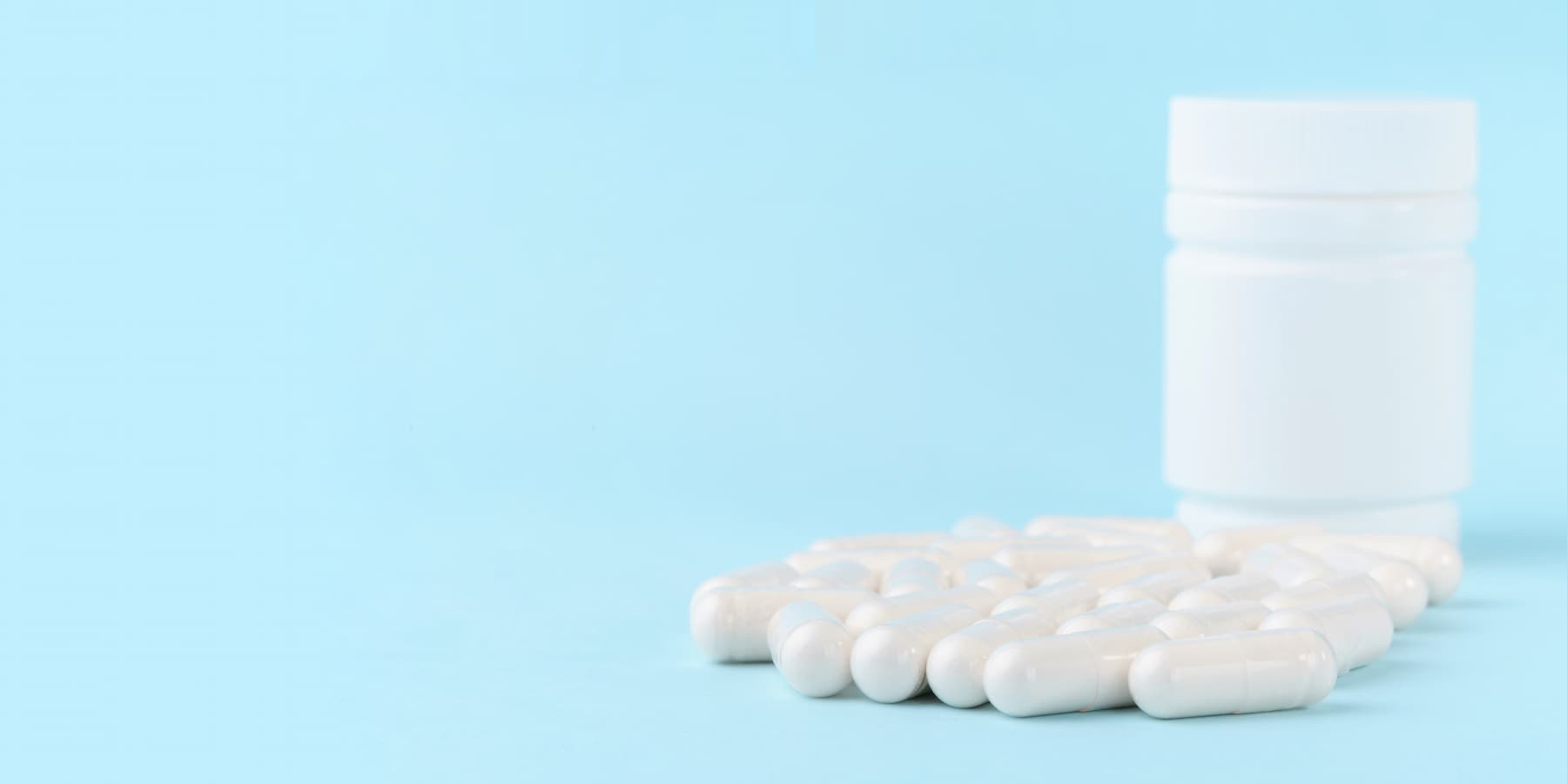
Chondroitin helps the joints and other elements of the body.

Glutathione is one of the most potent antioxidants for supporting the body's health. Find out how it works and where to get it from.

See why hip joints hurt and how to treat their ailments.
